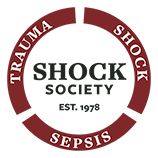Mission
The mission statement of the Shock Society is to improve the care of victims of trauma, shock, and sepsis, through:
- Promoting clinically relevant research into the basic biology of trauma, shock, and sepsis
- Providing a multidisciplinary forum to integrate and disseminate new knowledge in trauma, shock, and sepsis
- Promoting the education and mentoring of the next generation of investigators in the field of trauma, shock, and sepsis.
We all belong to different societies, but obviously Shock is very important to us all.
So the question is WHY the Shock Society?
- A unique opportunity to learn from the best and brightest in shock-related science and clinical care in a friendly and nurturing environment.
Rosemary Kozar, MD, Ph.D.
- For me it’s because it’s where the rubber meets the road for translational science… but I actually LEARN things at Shock, things I can use in my research practice (as opposed to my clinical practice). It also provides an opportunity for true mentorship.
Philip A. Efron, MD, FACS, FCCM
- My answer to "Why Shock?" is because "If we understand shock, we will understand why/how people die from injury and critical illness. Once we understand shock (many) more people will live!"
Michaela West, MD, Ph.D., FACS
- You will join the company of scientists engaged in research ranging from the molecular to the cellular to the organ and system levels of the victims of trauma, shock and sepsis.
Michael D. Karlstad, Ph.D.
- Did you know that death by bleeding-out destroys more life-time, than any cancer or heart disease, combined? What could we do?
Anirban Banerje, Ph.D.
- When I attended my first Shock Society meeting almost 2 decades ago I was struck and thrilled by the Society's commitment to fostering functional interactions between scientists and physician-scientists involved in basic, translational and clinical research. The Shock Society is truly a multidisciplinary scientifically oriented society - a paradigm for promoting collaborative clinically-relevant bench-bedside research."
Judith Hellman, M.D.
- Why shock? A major unmet medical need that needs our best science.
Yoram Vodovotz, Ph.D.
Interested in:
- Understanding the pathophysiology of injury, inflammation, shock, sepsis, and low flow conditions
- The prevention and treatment of injury, shock and low flow conditions
- Having discussions at breakfast, lunch, and dinner in a casual atmosphere
- Recognizing and promoting both the clinical and basic science members by alternating the Presidency, Council, and the Program Chair position between them, and
- Promoting young basic science and clinical investigators by granting travel awards and having a session solely devoted to “New Investigators Award Competition” and awarding the winners not only cash prizes but also plaques
- Providing mentoring service to young investigators by senior society members
- Promoting Junior Faculty and Post-Doctoral fellows by granting them grants and stipends
- Having a Presidential fun run that is composed of young, mid-range and senior investigators including previous Past Presidents and other Officers of the Society.
Irshad H. Chaudry, Ph.D.
WHY is the Shock Society important to you? Please share here.
|
